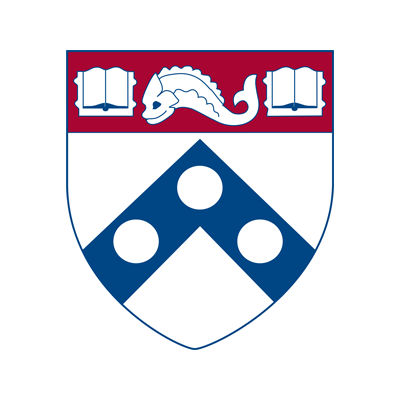Request Demo
Last update 21 Feb 2026
CTL-119
Last update 21 Feb 2026
Overview
Basic Info
Drug Type Autologous CAR-T |
Synonyms Anti-CD19 CAR-T cell therapy - Novartis/University of Pennsylvania, HUCART19, CTL 119 + [2] |
Target |
Action modulators |
Mechanism CD19 modulators(B-lymphocyte antigen CD19 modulators), T lymphocyte replacements |
Therapeutic Areas |
Inactive Indication |
Originator Organization |
Active Organization |
Inactive Organization- |
License Organization- |
Drug Highest PhasePhase 2 |
First Approval Date- |
Regulation- |
Login to view timeline
Structure/Sequence
Sequence Code 119909co-stimulatory domain

Sequence Code 133244

Sequence Code 163267CAR construct

R&D Status
10 top R&D records. to view more data
Login
| Indication | Highest Phase | Country/Location | Organization | Date |
|---|---|---|---|---|
| Adult Lymphoblastic Lymphoma | Phase 2 | United States | 25 Jan 2023 | |
| CD19-positive B-cell acute lymphoblastic leukemia | Phase 2 | United States | 25 Jan 2023 | |
| Recurrent B Acute Lymphoblastic Leukemia | Phase 2 | United States | 18 Jan 2019 | |
| Refractory Adult Acute Lymphoblastic Leukemia | Phase 1 | United States | 27 Sep 2018 | |
| Plasma Cell Leukemia | Phase 1 | United States | 09 May 2018 | |
| Plasma Cell Leukemia | Phase 1 | United States | 09 May 2018 | |
| Relapse multiple myeloma | Phase 1 | United States | 09 May 2018 | |
| Relapse multiple myeloma | Phase 1 | United States | 09 May 2018 | |
| Chronic lymphocytic leukaemia refractory | Phase 1 | United States | 29 Jan 2016 | |
| Small Lymphocytic Lymphoma | Phase 1 | United States | 29 Jan 2016 |
Login to view more data
Clinical Result
Clinical Result
Indication
Phase
Evaluation
View All Results
Not Applicable | 57 | osyfvssnvx(agopltfphh) = smfbyuxklu hpuiyvxuap (vxrdytstpl ) View more | Positive | 08 Dec 2024 | |||
osyfvssnvx(agopltfphh) = bgpnhxarsx hpuiyvxuap (vxrdytstpl ) View more | |||||||
Phase 1 | 19 | CTL-119+Ibrutinib | mjizgxpjzg(vnyxmpvlcl) = 18pts cytokine release syndrome (CRS; grade 1-2 in 15pts) and 5pts neurotoxicity (grade 1-2 in 4pts, grade 4 in 1pt) vttbxcibvh (ozzsxehasl ) | Positive | 29 Mar 2022 | ||
Phase 1 | 38 | (CAR-naive) | yyprqwyeek(remgvrzljl) = Cytokine release syndrome (CRS) was observed in 34/38 patients and mild in most patients (grade 1, n=6; grade 2, n=23). Four patients experienced grade 3 CRS requiring supplemental oxygen and/or low-dose vasopressor support and 1 experienced grade 4 CRS requiring high-dose vasopressor and ventilatory support. oifjqztxok (wefefoosvy ) | Positive | 07 Dec 2017 | ||
(retreatment) | |||||||
Early Phase 1 | 10 | Ibrutinib+CD19 CAR-T cells | vfkphqedha(hetutnovtr) = in 9 pts; gr1 in 2, gr2 in 6 and gr3 in 1 pt. One pt developed gr4 tumor lysis syndrome hvnibtadhj (kdkdmwphol ) | Positive | 05 Jun 2017 |
Login to view more data
Translational Medicine
Boost your research with our translational medicine data.
login
or

Deal
Boost your decision using our deal data.
login
or

Core Patent
Boost your research with our Core Patent data.
login
or

Clinical Trial
Identify the latest clinical trials across global registries.
login
or

Approval
Accelerate your research with the latest regulatory approval information.
login
or

Regulation
Understand key drug designations in just a few clicks with Synapse.
login
or

AI Agents Built for Biopharma Breakthroughs
Accelerate discovery. Empower decisions. Transform outcomes.
Get started for free today!
Accelerate Strategic R&D decision making with Synapse, PatSnap’s AI-powered Connected Innovation Intelligence Platform Built for Life Sciences Professionals.
Start your data trial now!
Synapse data is also accessible to external entities via APIs or data packages. Empower better decisions with the latest in pharmaceutical intelligence.
Bio
Bio Sequences Search & Analysis
Sign up for free
Chemical
Chemical Structures Search & Analysis
Sign up for free


